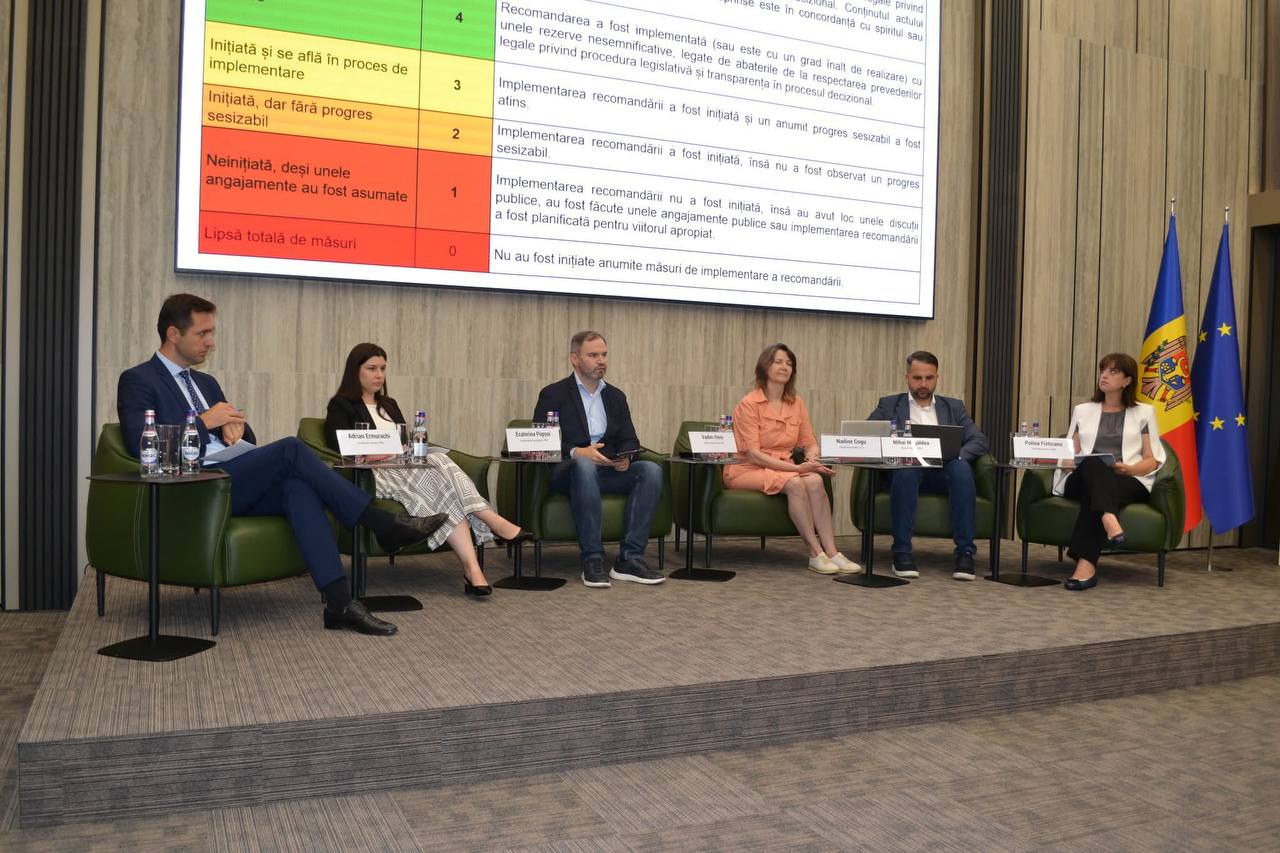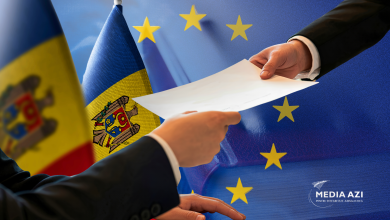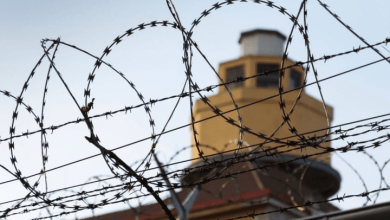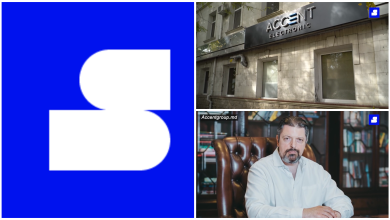Press freedom continues to be affected by systemic vulnerabilities, according to a new report monitoring the implementation of EU accession recommendations
Mihaela Ciobanu

Freedom of the press continues to be affected by structural vulnerabilities, despite recent legislative and policy initiatives. The suspension of TV stations’ licences without a court decision and the lack of public data on who owns or finances print and online publications are among the main shortcomings affecting the field, according to the second report monitoring Moldova’s progress in implementing the European Commission’s recommendations in the context of its accession to the European Union. The document was released on July 28, 2025.
The report, now in its second edition, assesses how the authorities have implemented the Commission’s recommendations in the “Fundamental Elements” cluster, which is essential for opening and conducting negotiations for accession to the European Union. The assessment covers the period July 2024 to May 2025 and was carried out by a consortium of civil society organizations that monitored the consistency, sustainability, and impact of the reforms.
“Although relevant progress has been made in most areas, implementation remains uneven and a number of structural, administrative, and political constraints persist,” the authors note.
Freedom of expression scored an average of 2.6 out of 5 points in the monitoring, reflecting a slight improvement compared to the first report, published in July 2024.
SUSPENSION OF TV LICENCES WITHOUT A COURT DECISION, CONTRARY TO EUROPEAN STANDARDS
According to the report, the most problematic development in terms of freedom of expression is the possibility for the authorities to suspend TV stations’ broadcasting licences without a court decision, citing national security grounds. This practice is considered contrary to European standards on freedom of expression and sets a dangerous precedent: the state can shut down a TV station without the facts being examined by an independent court.
“The current mechanism raises several legal and democratic issues, including the risk of political interference if legislation is used to block or sanction media outlets under the pretext of protecting national security; the involvement of government entities outside the specialized regulatory authority—the Audiovisual Council—in the decision-making process regarding media activity; the lack of a prior assessment of media content that would justify suspension and the exclusion of courts from the suspension procedure, which diminishes the guarantees of judicial review and protection of fundamental rights,” explained Nadine Gogu, director of the Center for Independent Journalism and co-author of the report, at the launch event.
UNREGULATED TRANSPARENCY OF OWNERSHIP OF THE PRINT AND ONLINE MEDIA
Another shortcoming highlighted is the lack of a legal framework to regulate the ownership of the print and online media transparently. In 2024, a new press law was drafted that includes such provisions, but it has not materialized into clear legislative proposals or public initiatives from the authorities. The report emphasizes that, in the absence of such rules, transparency regarding the sources of funding and ownership of publications is limited. “Portals controlled from behind the scenes, including by politicians or people with partisan interests, promote political agendas covertly or openly, affecting the quality of information and public trust in the media,” the analysis notes.
PROTECTION OF JOURNALISTS REMAINS INSUFFICIENT
The report notes that no significant progress has been made in protecting journalists from intimidation and attacks. Journalistic activity continues to be exposed to threats, political pressure, and denial of access to information by officials. Cases of aggressive behavior, use of offensive language, and unfounded accusations in the public sphere continue to be reported. The document indicates that the authorities should establish a mechanism to protect the media, providing for clear sanctions for abusers.
(IN)EVOLUTION IN PRESS SELF-REGULATION
The report notes some progress in media self-regulation. In 2024, the Press Council completed the process of revising the Code of Ethics for Journalists, adapting it to the new realities of journalism, including the digital context and the use of artificial intelligence. At the same time, a register of signatories to the Code and rules for its maintenance and updating were drawn up.
However, the authors insist that “despite this progress, many media outlets—especially online—continue to frequently violate ethical standards. Media products are affected by a lack of human and financial resources, and content is often taken from other sources without verification or contextualization. Few media institutions have internal codes of ethics, and plagiarism remains a major problem, exacerbated by the inappropriate use of artificial intelligence tools.” In addition, the Press Council, registered as a separate legal entity in 2023, has not yet managed to consolidate itself institutionally, operating mainly on a project basis.
In 2024, the chapter on freedom of expression contained three recommendations, and in 2025, this number increased to five. The new recommendations concern the revision of the rules for selecting members of the Supervisory and Development Council of Teleradio-Moldova and members of the Audiovisual Council (adopted in the meantime by Parliament on July 10), as well as revising the mechanism for suspending TV stations under the Law on Strategic Investments to bring it into line with EU and international standards.
As Moldova is a candidate country for EU membership, the European Commission publishes an annual comprehensive report assessing the country’s readiness for accession and the progress made in this regard. The reports assess the level of preparedness for all chapters of the EU acquis to be negotiated by Chisinau and Brussels, and make specific recommendations for each chapter, based on the main challenges identified by the Commission.



